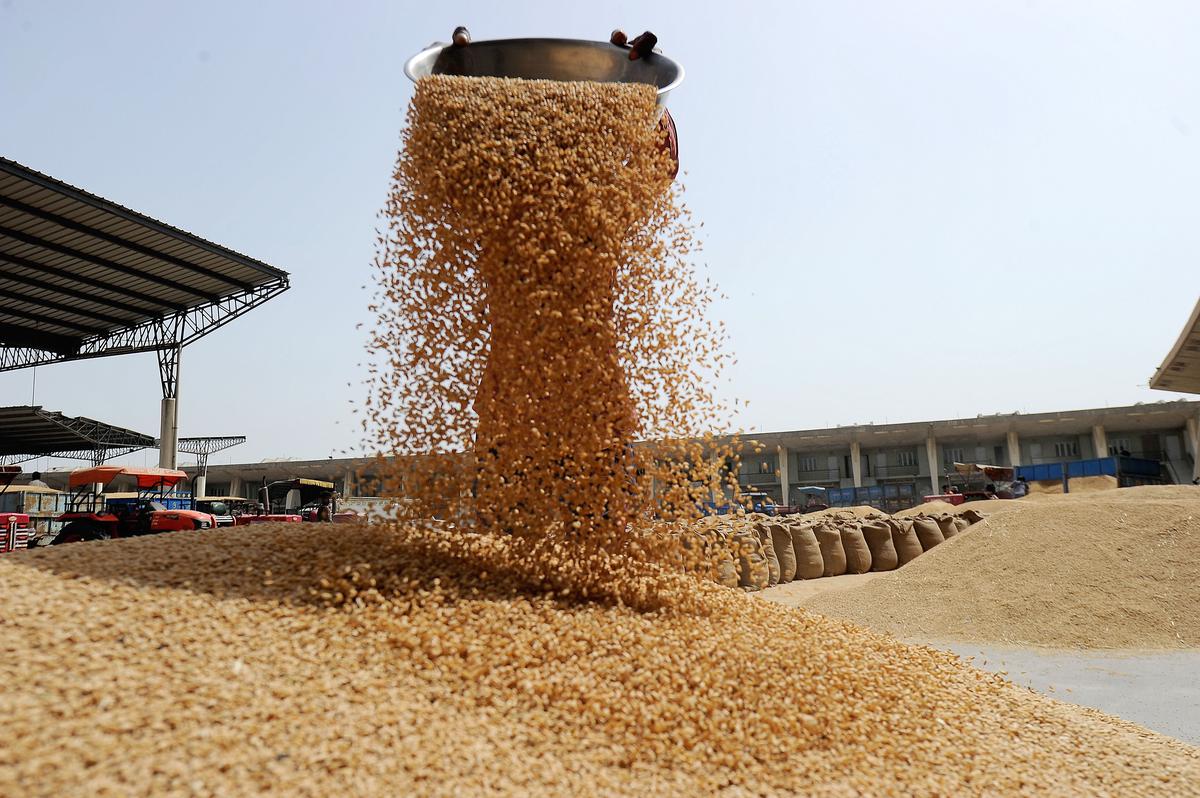The Indian government has decided to discontinue the sale of rice and wheat from the central pool under the Open Market Sale Scheme (OMSS) to state governments. This move, aimed at curbing rising prices, will impact certain states, including Karnataka, that provide free grains to the poor. However, rice sales under the OMSS will continue for northeastern states, hilly regions, and states facing law and order issues or natural calamities.
Discontinuation of OMSS Sale to State Governments:
The Food Corporation of India (FCI) has issued an order stating that the sale of wheat and rice to state governments under the OMSS (domestic) is discontinued. This decision has already been communicated to the Karnataka government, which had requested 13,819 tonnes of rice for its own scheme under the OMSS for July. The sale was sought at a rate of Rs 3,400 per quintal without e-auction.
Exemption for Certain States:
While the sale of rice and wheat to state governments is halted, rice sales under the OMSS will continue for northeastern states, hilly regions, and states facing law and order situations or natural calamities. The existing rate of Rs 3,400 per quintal will be maintained for these states.
Role of FCI:
The FCI may sell rice under the OMSS to private parties from the central pool stock as required to stabilize market prices. This measure aims to moderate inflationary trends while ensuring adequate stock levels in the central pool.
Objective: Control Inflation and Stock Management:
The decision to exclude state governments’ schemes from the OMSS (domestic) is intended to maintain control over inflationary trends and ensure sufficient stock levels in the central pool. The government aims to strike a balance between controlling open market prices and meeting the needs of the general public.
Stock Limits and Offloading:
In a recent announcement, the central government imposed stock limits on wheat until March 31, 2024, to combat hoarding. Additionally, the government plans to offload rice and wheat under the OMSS to cool down open market prices. While the quantity of wheat for sale under the OMSS has been fixed at 15 lakh tonnes, the quantity of rice has not been specified.
Upcoming Auction and Changes in Bid Quantities:
The first auction of wheat under the OMSS for the financial year 2023-24 is scheduled for June 28. The new OMSS (D) introduces changes in the quantity a bidder can purchase in a single bid. Previously, the maximum allowed quantity was 3,000 tonnes per bid for a buyer. However, this time, the range is reduced to 10-100 tonnes per bid to accommodate smaller buyers and ensure wider participation, enabling immediate distribution of stocks sold under the OMSS (D) to the general public.
Challenges of Monsoon and Rising Prices:
The decision to discontinue OMSS sales to state governments comes amid slow progress in monsoon rainfall and increasing prices of rice and wheat. Official data reveals that rice prices have risen by up to 10 percent over the past year at the mandi level, with an 8 percent increase in the last month alone. The monsoon season is critical as approximately 80 percent of the country’s total rice production occurs during the kharif season, with sowing scheduled to begin next month.
Find More News Related to Schemes & Committees




 Which District is known as the Medical C...
Which District is known as the Medical C...
 Which was the First Women's University i...
Which was the First Women's University i...
 L&T Vyoma to Study 250 MW Green AI D...
L&T Vyoma to Study 250 MW Green AI D...








